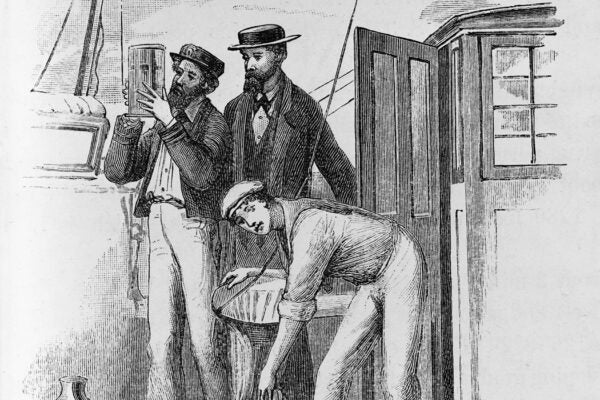HMS Challenger and the History of Science at Sea
Sailing ships were once used as scientific instruments themselves, but in the 1800s, ships like the Challenger were transformed into floating laboratories.
“Protecting Kids” from Gay Marriage
Leading up to a 2004 debate about same-sex marriage, conservatives shifted their focus away from moral issues and toward arguments about children’s welfare.
Seeing Cannibals in the Enlightenment
The responses British and Spanish explorers had to the Nuu-chah-nulth (Nootka) people and their alleged cannibalism came down to imperialist goals.
Japanese Tourists at the Dancehall
For some young, working-class Japanese men and women, Jamaican reggae clubs offer an escape from cultural norms and a way to gain currency in the music world.
Tree of Peace, Spark of War
The white pines of New England may have done more than any leaf of tea to kick off the American Revolution.
How Sports Shaped Glacier Science
The heroic masculinity that governed early glacial science had its roots in nineteenth-century British sporting culture.
A Selection of Student Confessions
Did you break a campus rule? Let the students of Millersville Normal School show you how to confess to the administration.
Thurgood Marshall
In a speech marking the bicentennial of the US Constitution, Marshall argued that its framers intentionally inscribed slavery into the American economy.
The Bawdy House Riots of 1668
Though so-called bawdy house riots were common in seventeenth-century London, the disorder of 1668 revealed the city’s deep political and religious resentments.
Policing the Holocaust in Paris
Unlike in the rest of Nazi-occupied Europe, the arrest of Jewish people was largely in the hands of ordinary policemen in France, especially in Paris.









